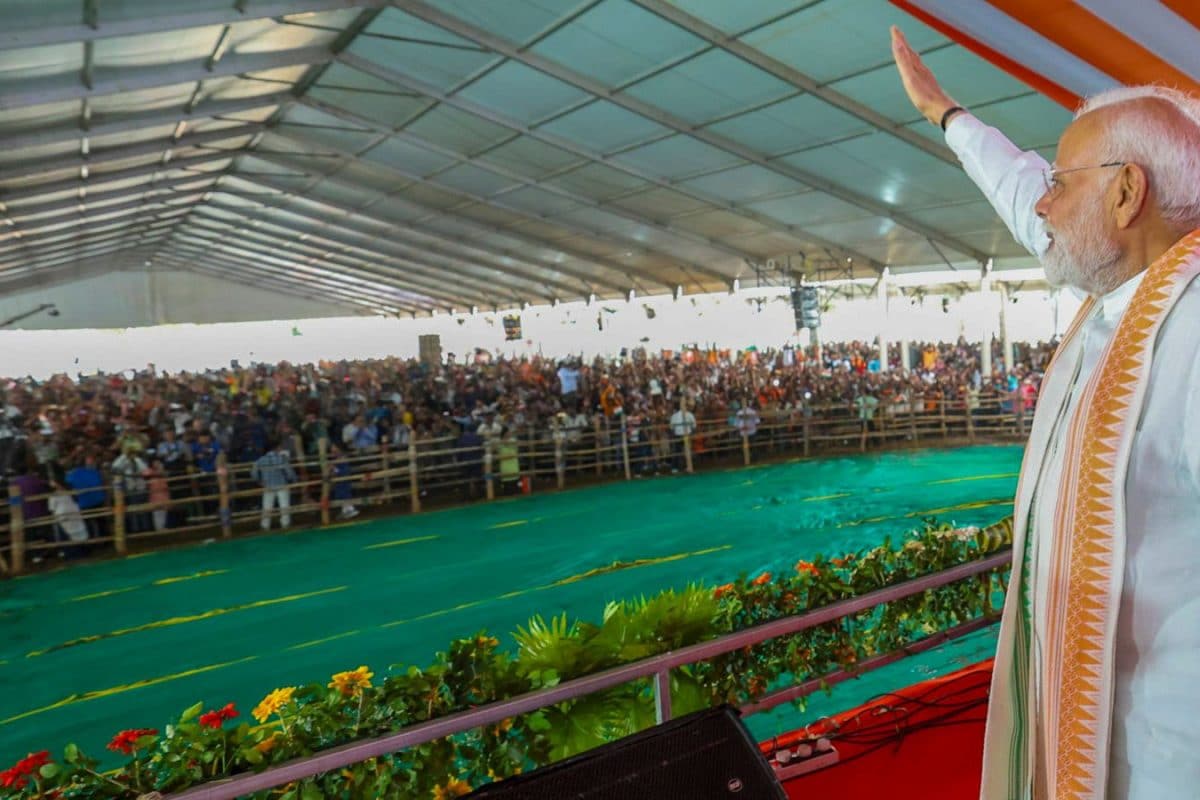

In West Bengal's political arena, a curious shift seems to be underway as the Bharatiya Janata Party (BJP) attempts to connect with Bengali identity or "Asmita." This involves a move away from the Hindi heartland's rallying cry of "Jai Shri Ram" towards the more regionally resonant "Jai Ma Kali" and "Jai Ma Durga". The Trinamool Congress (TMC), however, has mocked this adaptation as mere imitation and opportunism.
The BJP's endeavor to embrace Bengali culture is evident in recent events. Prime Minister Narendra Modi commenced his rally in Durgapur with "Jai Ma Kali, Jai Ma Durga," paying homage to two of Bengal's most prominent Hindu deities. This strategic shift aims to counter accusations of the BJP being a party of outsiders, disconnected from Bengal's cultural roots. By emphasizing Bengal's deities and icons, the BJP hopes to strike a chord with the local populace and dispel its "anti-Bengali" image.
This wasn't always the BJP's approach. In the lead-up to the 2021 Assembly elections, "Jai Shri Ram" became a contentious slogan, with BJP supporters using it to confront and provoke Chief Minister Mamata Banerjee. Banerjee even refused to attend a government function after the slogan was used against her in front of the Prime Minister. The TMC has long accused the BJP of attempting to impose North Indian culture on Bengal.
The TMC has been quick to criticize the BJP's newfound reverence for Ma Kali. TMC leaders have mocked the BJP's slogan switch, suggesting that the "TRP" of "Jai Shri Ram" is declining, while that of "Jai Ma Kali" is on the rise. Abhishek Banerjee, a senior TMC leader, has accused the BJP of mixing religion with politics and using slogans opportunistically. The TMC argues that the BJP's "cultural re-evaluation" is a superficial attempt to gain traction in a state where the party has struggled to fully connect with the electorate.
Mamata Banerjee has asserted that her party will defend the idea of "Hindustan" and has accused the BJP of politicizing religion with slogans like "Jai Shri Ram". The TMC has countered the BJP's slogans with "Jai Hind" and "Jai Bangla," emphasizing Bengali nationalism and inclusiveness. Some TMC leaders have challenged the BJP to demonstrate their sincerity by chanting "Jai Ma Kali," a deity deeply revered in Bengal.
The BJP's shift towards Bengali Asmita also involves highlighting the party's commitment to the state's development and cultural heritage. Modi has credited the BJP with securing "classical language status" for Bengali and has accused the TMC and Left Front of neglecting the language. The BJP aims to portray itself as the true champion of Bengali pride, countering the TMC's narrative of the BJP being "anti-Bengali".
However, the TMC continues to accuse the BJP of harassing Bengalis in BJP-ruled states and of attempting to impose a foreign culture on Bengal. Mamata Banerjee has organized rallies featuring Bengali migrant laborers who recount tales of mistreatment in BJP-governed states. The TMC's strategy is to paint the BJP as a party that is inherently opposed to Bengali interests and culture, despite its recent attempts to embrace local traditions.
As the 2026 Assembly elections approach, the battle for Bengal's soul intensifies. The BJP's calculated embrace of "Jai Ma Kali" and "Jai Ma Durga" represents a significant attempt to connect with Bengali Asmita and shed its outsider image. Whether this strategy will resonate with voters remains to be seen, as the TMC continues to cast the BJP's efforts as a cynical imitation of genuine Bengali culture.